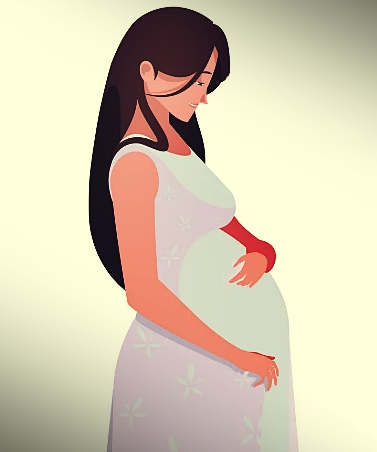The body’s stress management system, the hypothalamic pituitary adrenal (HPA) axis, releases cortisol in response to stress…reports Asian Lite News
High stress among women in pregnancy may get passed on to the foetus and raise the risk of depression and obesity among children later, finds a study.
Researchers at Washington University in St. Louis and Dartmouth College conducted a small study of 46 mothers and 40 toddlers and discovered a link between toddler hair cortisol levels — a long-term stress biomarker — and maternal prenatal depression.
Published in the American Journal of Human Biology, the study suggests that a child’s long-term stress physiology may be influenced by conditions experienced in utero.
Co-author Theresa Gildner highlighted that hair cortisol, which is less invasive than blood tests and more useful than saliva tests, can assess cumulative cortisol exposure over extended periods.
“By understanding the long-term effects of maternal stress on her offspring and when these effects are especially pronounced during pregnancy, we can better determine when interventions to support parents and reduce stress are most needed,” Gildner explained.
The body’s stress management system, the hypothalamic pituitary adrenal (HPA) axis, releases cortisol in response to stress.
Chronic stress can disrupt HPA-axis activity, leading to elevated cortisol levels and serious health problems. During pregnancy, high maternal cortisol can harm the foetus and affect development.
“Changes in offspring cortisol levels could potentially be beneficial, possibly leading toward accelerated growth and development in response to early adversity” Gildner said, adding that it may also have negative costs for the child.
This includes “lower birth weight and issues later in life, such as increased behavioural problems and elevated risk of developing cortisol-associated health conditions, such as depression, anxiety, digestive problems and weight gain.”
ALSO READ-What’s driving the mass exodus of pregnant women from Russia














